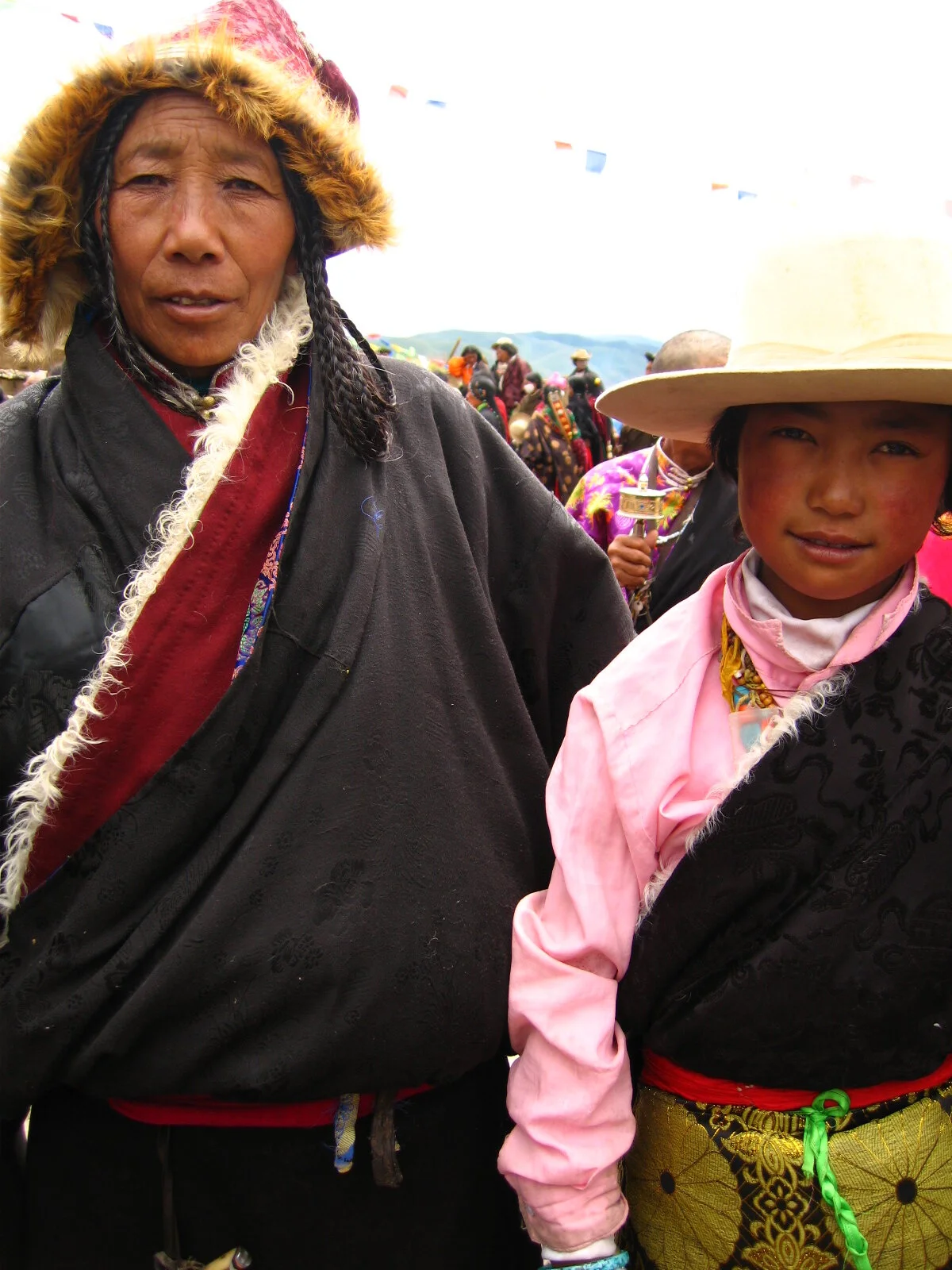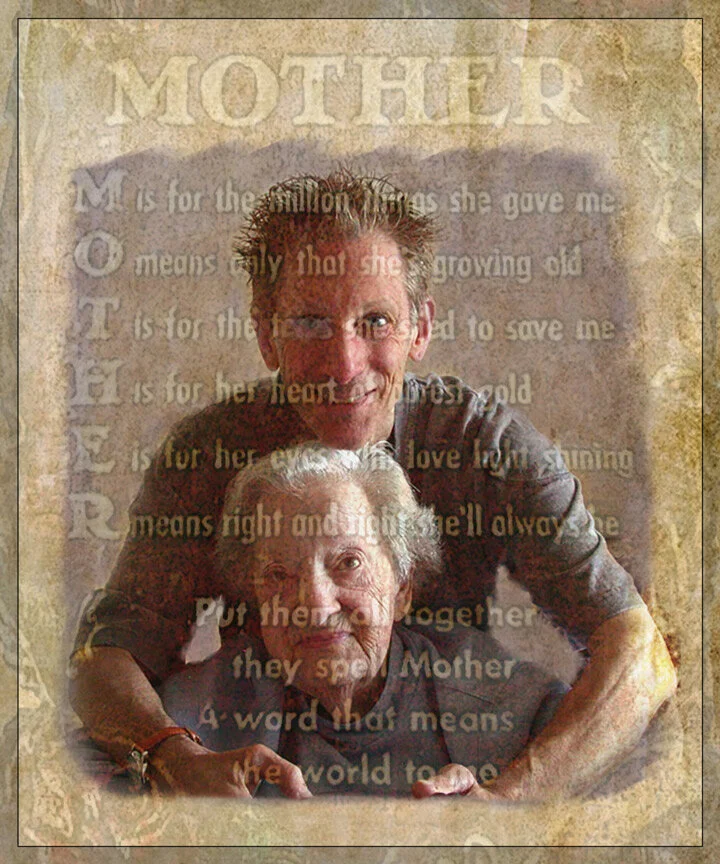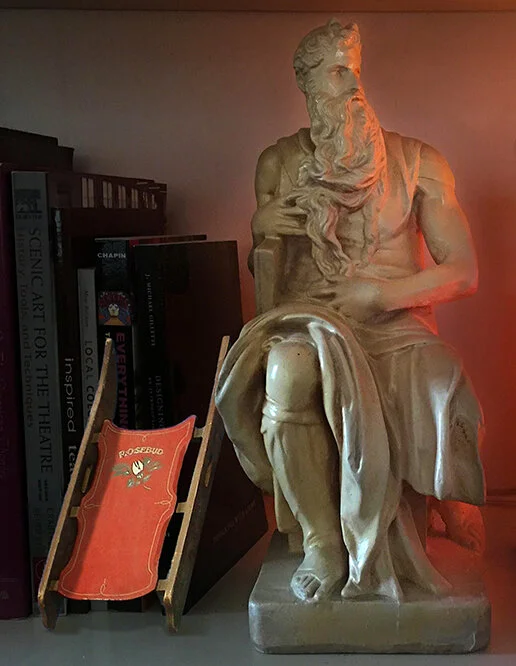The Lies I’ve Told About Childhood
by Cliff Simon
Throughout my childhood, my mother’s sister, Auntie Rose, was the knowing, gentle presence of optimism, trust and acceptance of life. I am sure she must have been like that from the very beginnings of her time on earth, living in an apartment above my grandparents’ grocery store in the Jewish ghetto on the lower east side of Manhattan, with my mother Lil and her twin brother, Uncle Moe. Always the voice of reason, she was both practical but also possessed a healthy sense of humor. Years before she died, my aunt told me if she ever got Alzheimer’s she would arrange to end her life. And I said to her: How would you remember?
I’ve been reflecting on several childhood memories lately, and that led to my thinking and googling about my childhood home in the Bronx. I discovered it no longer exists, nor does the address, 787 Crotona Park North. It just dissolved, post demolition, into a larger entity and resides presently only in my memory. On the same electronic map, I noticed that my old public school, PS 44, is temporarily closed, which I fear may be forever.
Around the corner from the school, on a clear spring day in 1957, the streets were filled with thousands of residents standing shoulder to shoulder, clamoring to see the Hollywood star, Elizabeth Taylor, who would be there to wave to us, the masses, in front of a movie studio where she was filming. I remember the crowds, but being so short and young, chances are I didn’t really get much of a look at her, though everyone, even my six-year-old self, knew how important she was.
A few blocks north of where Miss Taylor appeared, on the then sprawling Tremont Avenue, there was a bakery where my mother would buy challah bread, cake, and cookies for the family. The name escapes me, but I will never forget the woman slicing rye bread behind the counter, though my mental picture of her is relegated to an imaginary composite that looks like a scattered mass of brillo hair, as if she were the twin sister of Harpo Marx. Her name was Zecil [zee_sill]; she liked me and would give me and my sister each a free rainbow cookie every time we came in.
Two ethnicities lay cultural claim to rainbow cookies: Jews and Italians, who have much in common (except circumcisions). I know the Jews make the best ones (rainbow cookies, not circumcisions) because those were the ones I ate. They were made of rectangular layers of unearthly bright pink, yellow, and nearly fluorescent green sweet almond cake, separated by thin licks of jam and frosted in cheap chocolate, which tasted to me, an undersized, chubby, Jewish boy who loved sweets, like manna from heaven.
I think often about my past, though all I have are just snippets of memories of much of my youth. In Freudian thinking that might mean that I am repressing painful realizations of horrific truths which eventually distorted my responses to life and relationships. And as exciting as that sounds, to tell the absolute truth, Freud is dead.
My earliest and clearest memory occurred in my kindergarten class at PS 44 the same year that Liz came to the Bronx. It’s just a quick glimpse, on a Groundhog Day perpetual loop in my mind, and its simplicity leaves me feeling that my entire childhood was rich, sweet and beautiful. I can easily do a standup routine of the neurotic, pained childhood I’ve adopted to make people laugh by impressing them with my self-deprecating wit, but the truth is I was nurtured, hugged, held with genuine warmth, protected, cared for and loved by my mother and father, as well as by their friends, co-workers and relatives.
So I’ve been wondering why I’ve always felt the need to complicate and distort my youth, peopling it with dark characters and wrongdoers who I chose to think of as the cause of all my problems when I know in my heart they loved me with all of theirs. I’ve heard that perception is everything; that we can look at a situation with a negative and critical eye, or on the other hand, like Rose, see the same event or memory with a generous and accepting warmth. And I’ve been trying that outlook on for size lately, and it seems to be working.
That’s why I’ve become aware that the truncated memory I am going to share with you sums up my entire childhood, and how, when my perception of my upbringing shifts, even peripherally, instead of seeing a Freudian nightmare which I have advertised ever since I was an unhappy teenager, what I now see instead is a lovely dream.
It is 1957. I am sitting at my little kindergarten desk in PS 44, holding a thin piece of cardboard, about eight inches high by five inches wide, die-cut into an oval frame. I am in the middle of wrapping a length of shiny red one-inch wide satin ribbon around the frame, overlapping the ribbon a little bit as I go. I am enjoying it in an almost meditative way, meaning, not as much special, as pleasantly focused, performing a task as well as I can, that I will be able to give to my mother when I get home, and I know she’ll like it because she loves me.
I am as happy as I’ll ever be. And that is the point. As if my Auntie Rose suddenly appears, extends both her hands, holds my face in them as she gently kisses me on the top of my head and says: Look how lucky you are, how wonderful your life has always been.





